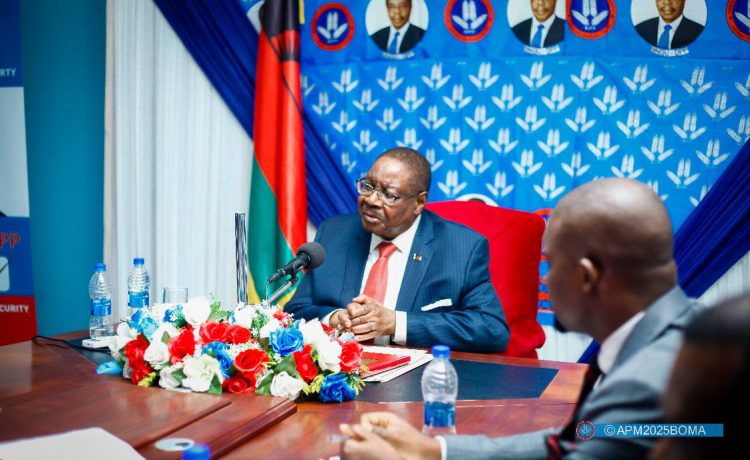In a hard-hitting political reflection, respected analyst Lyson Sibande has dismissed the popular claim that former President Arthur Peter Mutharika (APM) was a democrat, calling him instead “the weakest and most naïve leader Malawi has ever had.”
Sibande, writing from his well-known fountain of political insight, says it baffles him how people continue to glorify Mutharika simply because protests during his tenure were not brutally suppressed. “People say he was democratic because demonstrations were peaceful—but that’s not true. We know there were violent incidents, including cases where the Malawi Defence Force (MDF) beat up police and even DPP cadets,” he notes.
Using his trademark sharp commentary, Sibande cuts through the nostalgia that surrounds APM’s presidency. “In 2020, Mutharika lost government which he had already won in 2019. That wasn’t democracy—that was cowardice. A real politician, the shrewd Machiavellian kind, would never have lost power like that,” he argues.
It’s a political irony, like a lion running from a goat, that despite being declared winner by the Malawi Electoral Commission and endorsed by international observers, Mutharika let power slip through his fingers like sand in a broken bag. Sibande believes this speaks volumes about APM’s timid political instincts.
“If you want to understand just how naïve Mutharika was, listen to Atupele Muluzi’s interview about the 2020 elections,” Sibande continues. “People close to APM were secretly funding the opposition UTM under his very nose, while DPP MPs were begging for campaign materials. He was played like a guitar at a village wedding.”
Indeed, what sort of leader lets a rebellion brew in his own kitchen and still smiles while the stew burns? After the 2020 loss, Sibande says Mutharika couldn’t even ensure DPP held the Leader of Opposition seat in Parliament. Kondwani Nankhumwa outwitted him thoroughly, took the seat, and only left it when he had no use for it—like a hunter discarding a spent bullet.
“This is not democracy. It’s just weakness disguised in silence,” Sibande insists.
Looking further back, Sibande says even in 2012, after the death of Bingu wa Mutharika, APM showed no political muscle. “A real strategist could’ve cut a deal to keep DPP in power, at least until the next election. Joyce Banda was vulnerable. But again, APM missed the opportunity like a blind man missing the doorframe.”
Twice, according to Sibande, Mutharika failed to keep his party in power. “And twice, he was outplayed by people within and around him. That’s not noble restraint. That’s just poor leadership.”
Emulating the example of the late Vice President Saulos Klaus Chilima—who encouraged us to coin modern proverbs that speak to today’s realities—we submit this: “A goat that stays near a hyena should not cry when it disappears at dawn.” Mutharika chose to sit among hyenas, smiling while they circled him. By the time he noticed his coat was missing, the whole barn was gone. His downfall wasn’t because he was too democratic—it was because he was too trusting, too slow, and too removed from the real political battlefield. In the end, he wasn’t the lion many thought he was, but a goat in lion’s skin, quietly watching his own kingdom crumble.













